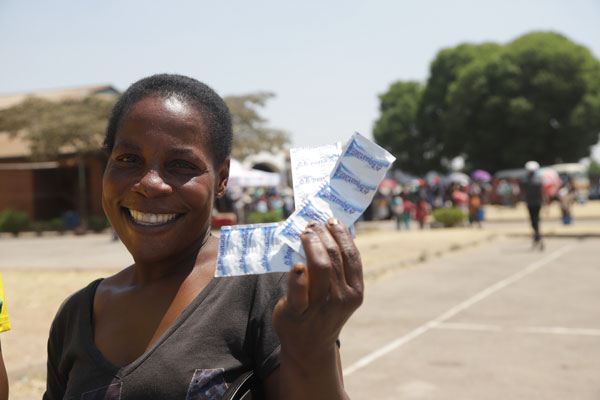
The number of cholera cases might be slowing down, but residents of Harare’s Glen View suburb — the epicentre of the latest outbreak of the mediaeval disease — are still living in fear.
BY VENERANDA LANGA

Access to clean water remains a struggle in the sprawling suburb where the cholera outbreak was declared on September 6.
At least 33 people have died and more than 7 919 hospitalised after contracting the water-borne disease that has since spread to many parts of Zimbabwe.
Getrude Musindo, who lives along 20 Crescent in Glen view, said residents were still dumping used sanitary pads, soiled pampers, dead dogs and cats and used condoms in the open despite the cholera outbreak.
“I am still very scared of contracting cholera because there is no rubbish collection going on here,” she said.
“In desperation, people are resorting to burning the rubbish, or dumping it at night near our houses.
“There are flies all over and a putrid smell. if this behaviour continues, then how are we going to combat cholera?
- Chamisa under fire over US$120K donation
- Mavhunga puts DeMbare into Chibuku quarterfinals
- Pension funds bet on Cabora Bassa oilfields
- Councils defy govt fire tender directive
Keep Reading
“We clean our houses, but as long as there is erratic collection of rubbish we are still in danger.”
Unicef and Oxfam teams were yesterday seen handing out buckets, soap and aqua tablets to people gathered at New Glen View Community Hall.
“The fear of contracting cholera is still palpable in Glen View despite interventions by donors, government and the local authority. The main problem is that there is still no running water,” said Sheila Mugoto, a resident.
“It only comes very late at night and it is dirty.
“People from the city council came to ask us if our toilets were functioning well so that they sort out the sewer systems, but as long as there is no clean running water coming out of the taps, then cholera is still a threat.”
Sixty-one-year-old Agnes David said she was scared of drinking tap water even after treating it with aqua tablets.
“I am an unemployed widow but I have resorted to buying drinking water,which costs $2,20 (five litres) because I am scared of consuming too much chemicals we are being given for cleaning the dirty tap water,” she said.
Community Working Group on Health executive director Itai Rusike said the cholera outbreak was linked to the country’s economic crisis.
Rusike said there was also lack of information and transparency, leading to suspicion that the scale of the cholera outbreak was understated.
“The current cholera outbreak was declared on September 6 and to date more than 30 deaths have been reported with 22 institutional deaths, yet we have not seen any indication of it declining as it is ongoing,” he said.
“We are concerned that the same lack of information and silence that concealed the cholera epidemic in its early stages is also leading to inadequate recognition of other health problems.
“This depresses an early response to preventing and managing it in the communities.”
Portia Manangazira, the director of epidemiology and disease control in the Health and Child Care ministry, said government would begin the cholera oral vaccination programme next week to deal with the epidemic.
“We will be getting 500 000 emergency doses next week, which will go to areas such as Glen View, Budiriro, Glen Norah and Mbare which are the hardest hit. It will be administered on people from one year to above,” she said.
“We are expecting another three million doses to be despatched to other areas that reported cholera like Masvingo and Manicaland, as well as outreach programmes in other areas.”
Manangazira said there was need to modernise water and sewer infrastructure, especially in areas such as Hopley, Stoneridge, Chitungwiza and Epworth, to curb cholera outbreaks.










